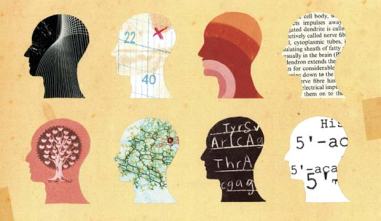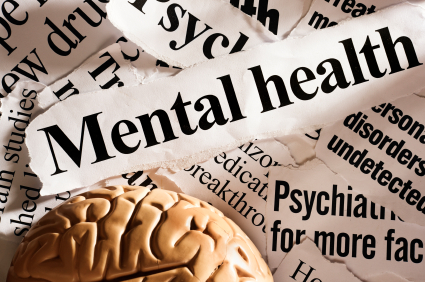Would you live with someone who struggled with depression? What about working with someone who managed anxiety? Just a few years ago, a survey conducted by Time to Change in England showed that 57% out of 1,714 people polled were unwilling to “live with someone with a mental health problem”. Although a second survey from 2014 by the same program showed an increase in this willingness to 62%, it also makes it clear that many people still wouldn’t continue a relationship with, work with, live with, or even live nearby “someone with a mental health problem”.
Mental health issues, all of them, are not a choice.
I know I’m supposed to look at the data from this survey and go “Wow what an improvement!” and it totally is. But, while the numbers look great, the comments I hear everyday about mental health aren’t. From people mocking students who get extra test time, to claiming that students exaggerate or even fake their depression, to minimizing anxiety as nothing more than ordinary stress, I don’t see or hear this changing mindset among the people around me.
Although I hear about them and read about them – through wonderful speeches, writers, speakers, teachers, and even friends – people usually distance themselves from the “darker” mental health issues such as eating disorders, depression, addiction, personality disorders, and anxiety.

Society brushes each one off as a bad choice, a bad day, a bad attitude when in reality it’s an imbalance of brain chemicals combined with social pressures or expectations combined with numerous other influences both internal and external. This stigma often convinces people actually dealing with these disorders to do the same and look the other way, making them reluctant to seek help.
People often view mental health disorders such as epilepsy, attention-deficit disorder, dyslexia, and insomnia as more clear-cut medical problems with causes and treatments. Yet, while the same logic should be applied to all disorders, they’ve either minimized or inflated them with shame, discomfort, and unimportance, allowing people to easily look them over.
Mental health issues, all of them, are not a choice.

And, this final point is something you MUST know: they’re not contagious. Yes, this is truly something people think and it saddens me more than any other misconception. No, you will not get depression by talking to someone with depression.
Mental illnesses are not airborne, they do not accompany a virus or bacteria, but they sure do exist. Please take note of that.
If you or someone you know is struggling with a mental health disorder, please encourage them to seek help from a counselor, doctor, or parents. Here are some helpful resources:
Mental Health America – B4Stage4
National Institute of Mental Health
(Does this post feel kind of negative? Like society’s progress towards fully accepting those with mental health issues is going unnoticed? Well, next week I’ll expand on the data discussed in my intro and all the wonderful changes people are making to decrease the stigma around mental health.)
